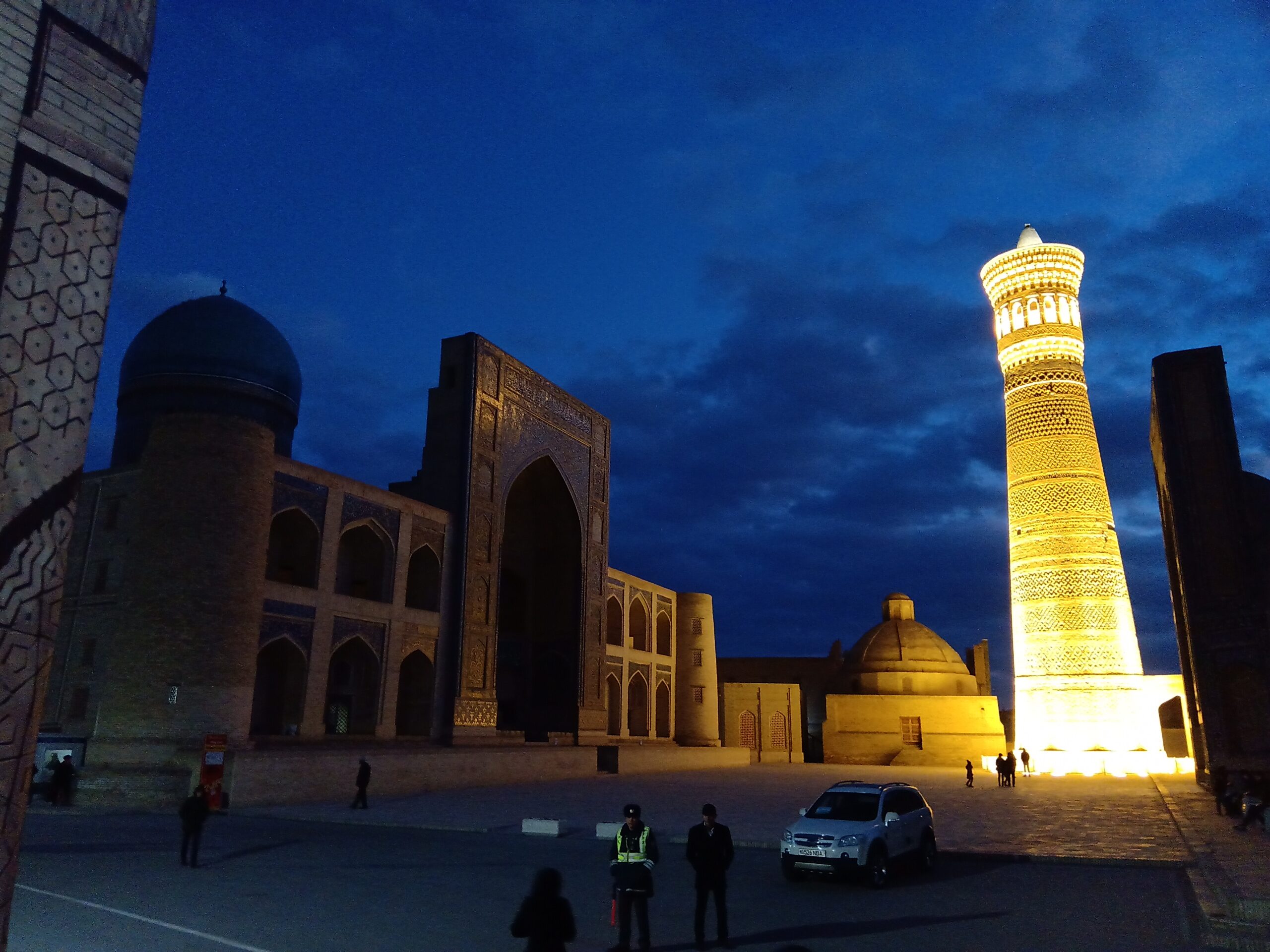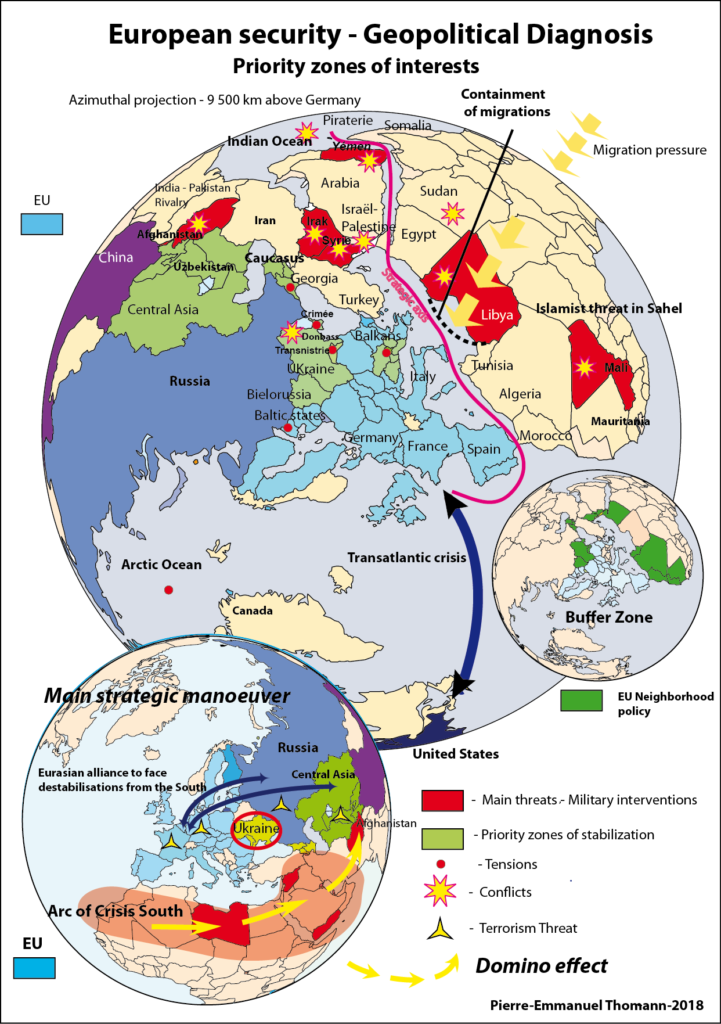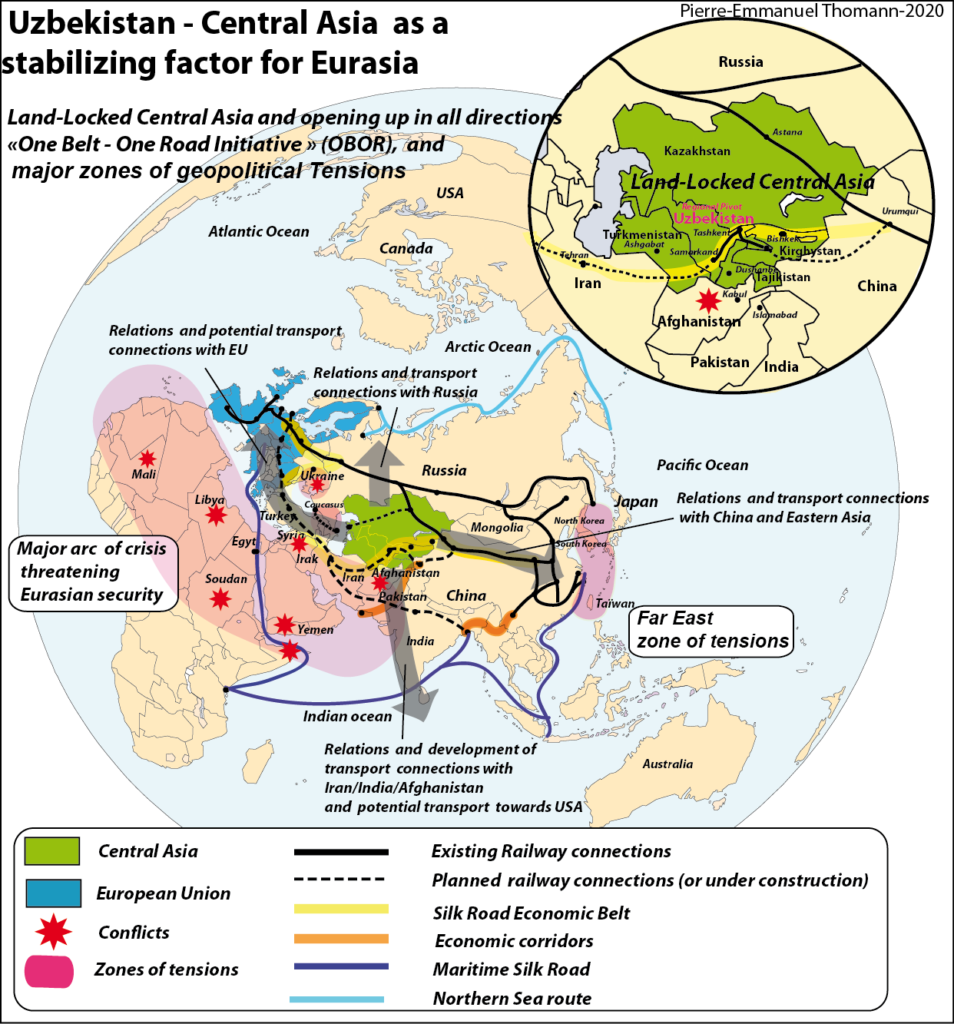
Uzbekistan and Europe consolidate their cooperation
On the 9th of April 2021, Uzbekistan became a beneficiary Special Incentive Arrangement for Sustainable Development and Good Governance (GSP+). The benefit of GSP+ is the removal of tariffs on 2/3 of all goods present in the EU’s official product list. The access the European market without customs duties will benefit to 6 200 products. Uzbekistan already benefited before of an advantageous treatment under the wider Generalized Scheme of Preferences (GSP) arrangement. and this benefitted to exports of 3,000 goods without tariffs. The GSP + list means a doubling in the number of products without tariffs. In 2019, the trade turnover between Uzbekistan and the EU countries amounted to $4 billion, including exports – $574.5 million, imports – $3.42bn. As a result of the Covid-19 pandemic, the trade volume between Uzbekistan and European Union countries for the first 8 months of 2020 amounted to $2.3 billion, which is 10% less than the same indicator for 2019. Uzbek products’ exports to Europe decreased by 8.5%, amounting to $277 million, the imports decreased by 10.5%, amounting to $1.97 billion. The GSP+ scheme is welcomed to boost again trade when the pandemic crisis will be over. There are 1,052 enterprises in Uzbekistan with investments from the EU countries, including 304 companies with 100% European capital.
Uzbekistan is also negotiating the Extended Partnership and Cooperation Agreements (EPCA) with the European Union. in order to replace the Partnership and Cooperation Agreement (PCA) in effect since 1999. The talks started in November 2018 and Uzbekistan and the European Union are currently hope to sign a deal by the end of the year. Relations between Uzbekistan and European Union began on April 15, 1992 with the signing of a Memorandum of Understanding between the Government of Uzbekistan and the European Commission. Diplomatic relations were established on November 16, 1994.
The EPCA includes more thematics than the SPG + status like corruption ,terrorism prevention, trade, justice reforms and human rights. There are now six EU-Uzbekistan joint bodies: the EU-Uzbekistan Cooperation Council, the Parliamentary Cooperation Committee, EU-Uzbekistan Cooperation Committee, the Subcommittee on Economy, Trade and Investment, the Subcommittee on Justice, Home Affairs, Human Rights and Related Issues, the Subcommittee on Cooperation Development. Joint projects between EU and Uzbekistan are implemented in the areas of social and economic development, education, rule of law, border management, the fight against drugs and organized crime, transport, environmental protection, agriculture
This reinforcement of relations of Uzbekistan with Europe was a clear target. The President of the Republic of Uzbekistan Shavkat Mirziyoyev made a visit to France in October 2018 and to Germany in January 2019. Around 20 political consultations were held with the ministries of foreign affairs of European countries such as Austria, Germany, Great Britain, Hungary, Spain, Italy, Latvia, Lithuania, Norway, Slovakia, Slovenia, Turkey, Finland, France, Czech Republic and Switzerland in 2019-2020,
Geopolitical balance is at the core of Uzbek foreign policy.
This status SPG + reinforces the trade and political links with European Union, but Uzbekistan is still following a multi-vectorial approach, combining strong relations with Russia since it obtained in 2020 an observer status in the Eurasian Economic Union, relations with China and its Silk road project and the EU. It also negotiating membership of the World Trade Organisation. This is why it would be wise for the European Union in the future to identify common interests and cooperate with other states like Russia, China, India in specific thematics and projects in Uzbekistan and avoid an exclusive approach. It would that way maximise its impact.
Why is this new development so important now ?
The consolidation of trade relations with Europe is important for Uzbek prosperity and private investors in Europe, but there is a much bigger geopolitical challenge to meet : when American troops are leaving Afghanistan, reinforcing the uncertainties of the country, the stability of Central Asia is all the more important for all states in Eurasia. The Afghan conflict stays the biggest security threat for Uzbekistan. The geographical position of Uzbekistan as a neighbor of Afghanistan and a pivot in central Asia, gives the country a particular role to contain instability and contributing to a more secure future for the whole of Eurasian continent.
The best systems of defence are concentric lines constituting different lines of defences to prevent instability pervading from zones of conflict and “failed states“. Concentric lines of defence are a necessity since the front lines are permanently moving in space and time and strategic depth is important.
The civilian and military operation in Afghanistan constituted the first line of defence against instability threatening the Eurasian continent and world security: the results were however far from optimal because the interests of neighbouring countries were not enough taken into account.
With the risk of geopolitical vacuum with the departure of the Unites States and the increase of geopolitical rivalry from Asian regional powers in Afghanistan, the stability of front-line states bordering the zone of conflict like Uzbekistan becomes even more important and they can be directly affected by any spread of instability. The whole area of Central Asia bordering Afghanistan constitutes a line of defence of continental importance against instability. This is why it is so important of European states not to lose loose interest in the region, but should reinforce their relations, and the GSP + is indirectly contributing to that.
The more Uzbekistan, the pivot state in Central Asia will be stronger in terms of prosperity and stability exporter, the more it will benefit the whole region and the Eurasian continent.
The territory of Central Asia is located at the intersection of the zones of influence of the Eurasian great powers. Future challenges are difficult to face as globalization is a carving up of geopolitical spaces between powers and can have very destabilizing effects in terms of security, economy and access to energy. The Eurasian continent constitutes the new geopolitical zone of manoeuvring for these competing powers because of its size, demography, minerals resources and geopolitical constellation.
The preservation of a strong regional political backbone is not only a national issue for Uzbekistan, but also an international issue. The stability of Eurasia depends largely on the stability of Central Asia, and the stability of Central Asia depends largely on the stability of Uzbekistan. Uzbekistan is an essential lock against instabilities arising from the conflict in Afghanistan.
Since 2009, a nuclear-weapon-free zone in Central Asia (CANWFZ) was already established as a powerful factor directed to maintain peace, regional stability and fruitful cooperation among the countries of the region and major powers. The Treaty on the CANWFZ became the first multilateral agreement in the area of security which covers all five Central Asian states.
More recently, Central Asia became the core priority of Uzbekistan’s foreign policy, and the new doctrinal focus is about creating stability, security and good-neighbourliness belt around Uzbekistan. The objective is to take advantage of the huge yet unrealized potential of the region. Uzbekistan has a common border with all other Central Asian states.
European security is intertwined with security challenges of Central Asia,
Central Asia plays is playing the role a buffer zone barring instability and further Eurasian fragmentation coming from external crisis and instability from Afghanistan. Central Asian region aspires now to become a geopolitical pole in its own right. As a strong stable and prosperous civilizational pole associated with a new potential Central Asian « Renaissance », the region will be in a better position to contain and prevent the proliferation of religious extremism.
Uzbekistan and European countries are therefore valuable partners for each other to promote a euro-continental area of security and prosperity and achieve a better balance of interests in the process of globalization.

